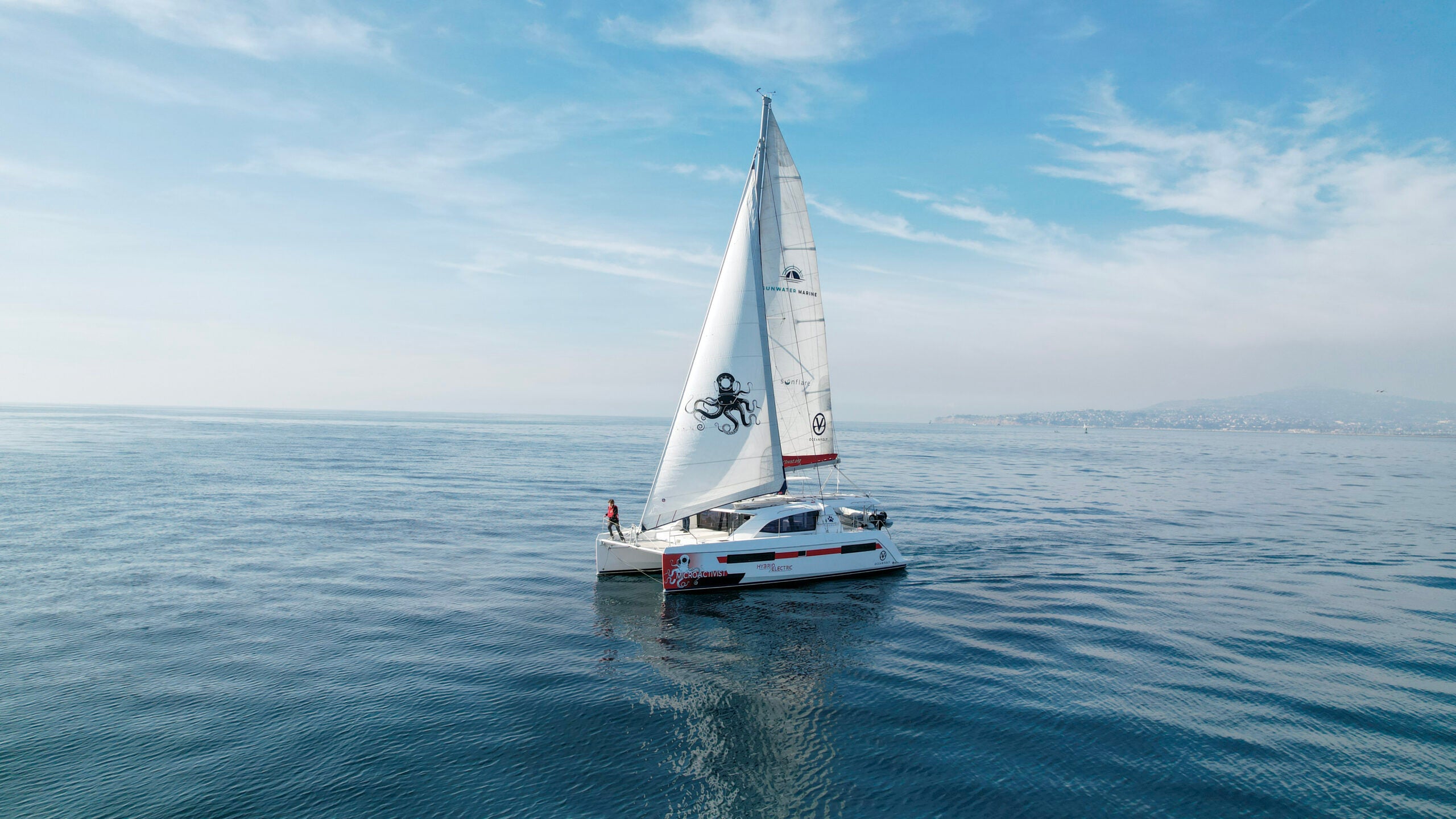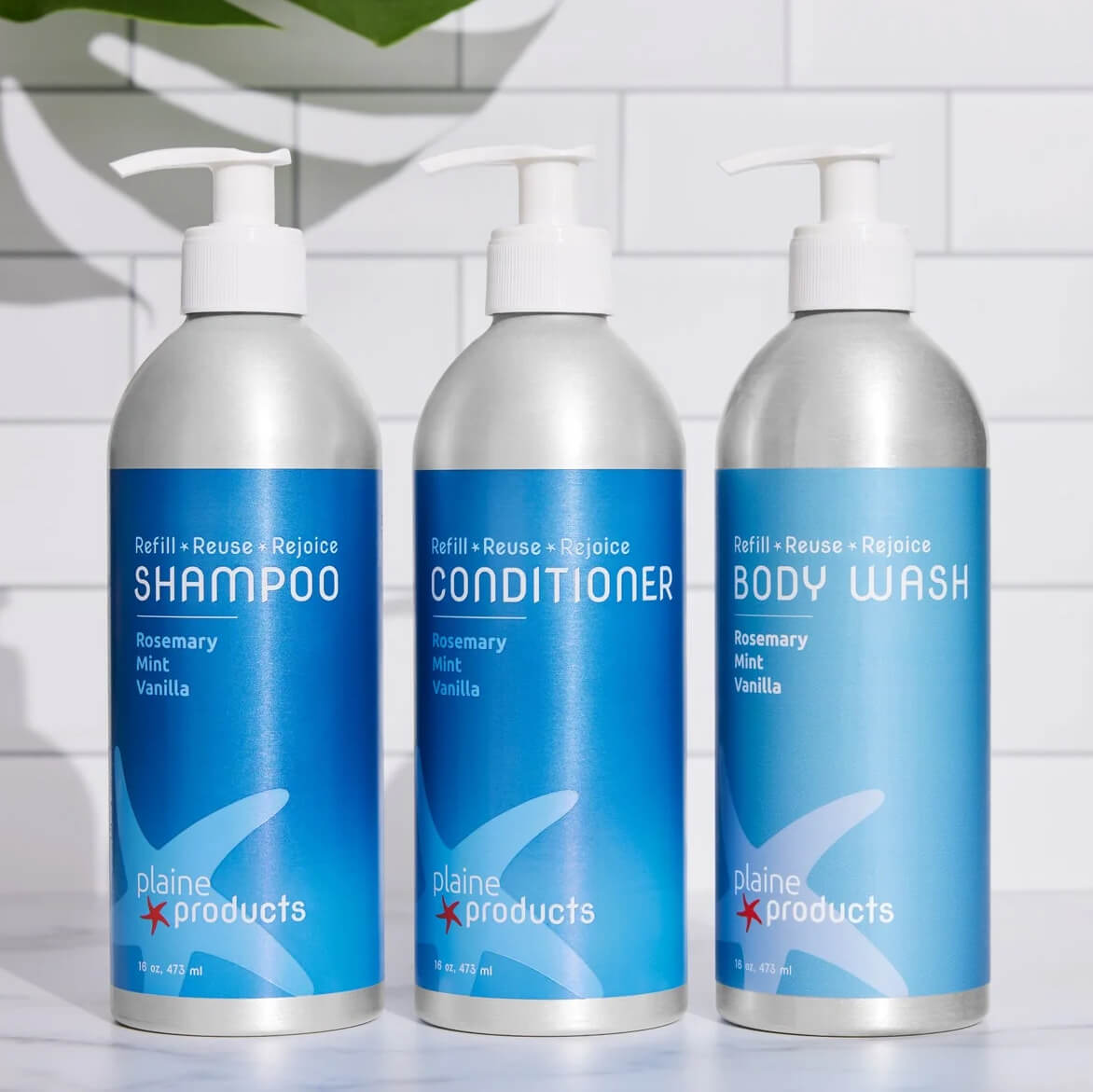Avoiding Single Use Plastics at Sea
 Avoiding doesn't mean going without. For example, personal care products are a huge source of plastics and microplastics in the environment, but the crew of the MicroActivist gets around that by stocking their ship with Plaine Products' personal care products in refillable aluminum containers. When a product runs low, all they have to do is order a refill. When the refill arrives in the mail, it's shipped in 100% recycled (and recyclable) packaging. They use the same packaging, and the enclosed free return label, to send the empty bottles back for reuse. This circular process means no waste, and the crew is completely avoiding single use plastic.
Avoiding doesn't mean going without. For example, personal care products are a huge source of plastics and microplastics in the environment, but the crew of the MicroActivist gets around that by stocking their ship with Plaine Products' personal care products in refillable aluminum containers. When a product runs low, all they have to do is order a refill. When the refill arrives in the mail, it's shipped in 100% recycled (and recyclable) packaging. They use the same packaging, and the enclosed free return label, to send the empty bottles back for reuse. This circular process means no waste, and the crew is completely avoiding single use plastic. But there's more. The MicroActivist Foundation was founded based on the passion of one young man — Connor Berryhill — for protecting the ocean and its creatures. His first initiatives, starting at the age of just five years old, were recruiting other kids to join him in beach clean-ups, one of UNEP's key strategies for beating plastic pollution. As Connor has grown, so have his dreams, which Plaine Products are proud to support. His life's work — and the foundation's mission — is to connect young people to the ocean, and to show them just how much power for positive change they have when they work together.
But there's more. The MicroActivist Foundation was founded based on the passion of one young man — Connor Berryhill — for protecting the ocean and its creatures. His first initiatives, starting at the age of just five years old, were recruiting other kids to join him in beach clean-ups, one of UNEP's key strategies for beating plastic pollution. As Connor has grown, so have his dreams, which Plaine Products are proud to support. His life's work — and the foundation's mission — is to connect young people to the ocean, and to show them just how much power for positive change they have when they work together. 




